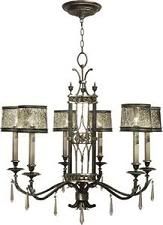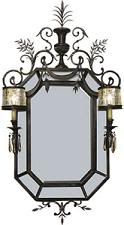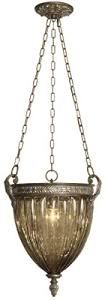Sunday, August 10, 2014
Brideshead Revisited, revisited
The 2008 theatrical film version of Evelyn Waugh's Brideshead Revisited has enough in it that's good to make it worth watching; enough not so good that it's frustrating.
Many people thought that the celebrated miniseries broadcast in 1981 (Jeremy Irons, Anthony Andrews, Diana Quick, Laurence Olivier et al.) was so definitive that condensing the new script into two and a quarter hours was bound to come up short, in both senses. I had my doubts and stayed away from the DVD until last week. But that was presuming too much. No movie is definitive, although some have a lot of audience identification a remake has to overcome to succeed.
It's said that comparisons are odious, and you should look at the work itself. It's good advice and almost impossible to follow sometimes, but I'll try to as much as I can here.
All right; what's good in the latter-day Brideshead? Foremost is Emma Thompson as Lady Marchmain. (Anybody interested in this posting is probably familiar with the story, either from the previous video incarnation or the book, but if not you can easily find a plot description on the Web.) Thompson steals the show. It would not surprise me if she, like most in the theatrical profession, is a leftist who despises the English aristocracy. But she gives the matriarch her due. There is no condescension, no easy caricature: Lady Marchmain is portrayed as reserved but not cruel, with her Catholicism honest rather than conventional.
I believe many English Catholics are still defensive in what was until recently a strongly Protestant country; they haven't forgotten the destruction of the monasteries and persecution in the time of Henry VIII. Moreover, Lady Marchmain has been through the disheartening experience of being left by her husband, Lord Marchmain, who some years earlier headed to Venice, shucked off his Catholicism, and is living with a mistress.
Speaking of Lord Marchmain, the role has gone this time to Michael Gambon, and as usual he has an almost hypnotic power. I think a lot of that is down to his voice, which is like the lower notes of a cello. Listening to it, you can imagine it as music.
The three central characters are Sebastian Flyte (Ben Whishaw), the Marchmains' son; Julia (Hayley Atwell), their daughter; and Charles Ryder (Matthew Goode), who meets Sebastian at Oxford, befriends him, is invited to Brideshead, the stately country house (played by Castle Howard in Yorkshire, the same location used for the TV series), and becomes thoroughly involved with Sebastian's family. What shall I say about the performers, whose work necessarily sets the tone for the whole story?
They all have fine acting technique. No doubt they studied the book and script scrupulously and did everything they could to internalize the characters. But they lack the weight to deliver the picture. They're watchable, occasionally involving, but for me mostly distant, on the other side of a window or gauze curtain. Your mileage may differ.
Another problem is the filmmakers' overall concept, which just doesn't connect with much of the depth, the seriousness, of -- here comes an odious comparison -- Waugh's novel. I'm not complaining about scenes and characters left out or passed over quickly, which a film adaptation has to do. But the focus has been changed. The Catholicism theme is reasonably well captured (although I think Lord Marchmain's deathbed conversion, or readoption, scene is botched), but too much psychological complexity has gone missing.
A presentation of this length had to drastically cut the World War II prelude and postlude when Ryder as an army officer finds himself with a unit that has taken over Brideshead for the duration. But that diffuses the poignancy of time's stab during the "revisiting."
A decision was taken to have Wishaw play Sebastian as overtly homosexual. He practically camps it up in the early sequences. The friendship (attraction?) between him and Charles is less, not more, dramatically effective as a result. A viewer isn't asked to bother his poor little head about any ambiguity. By the way, the wonderful scene in the book where the young men are boozing it up and devising fanciful descriptions of the wines they sample feels routine here, as though it had to be included because so many people would expect it.
Production values are first class, the marble coldness as well as the rich artistry of the house's decor immaculately captured, the exteriors nicely framed, costumes attractive. Director Julian Jarrold keeps things moving along but also knows when to linger. If only ... but maybe it's no use wishing for more. We live in an if-only world.
Subscribe to:
Post Comments (Atom)







No comments:
Post a Comment